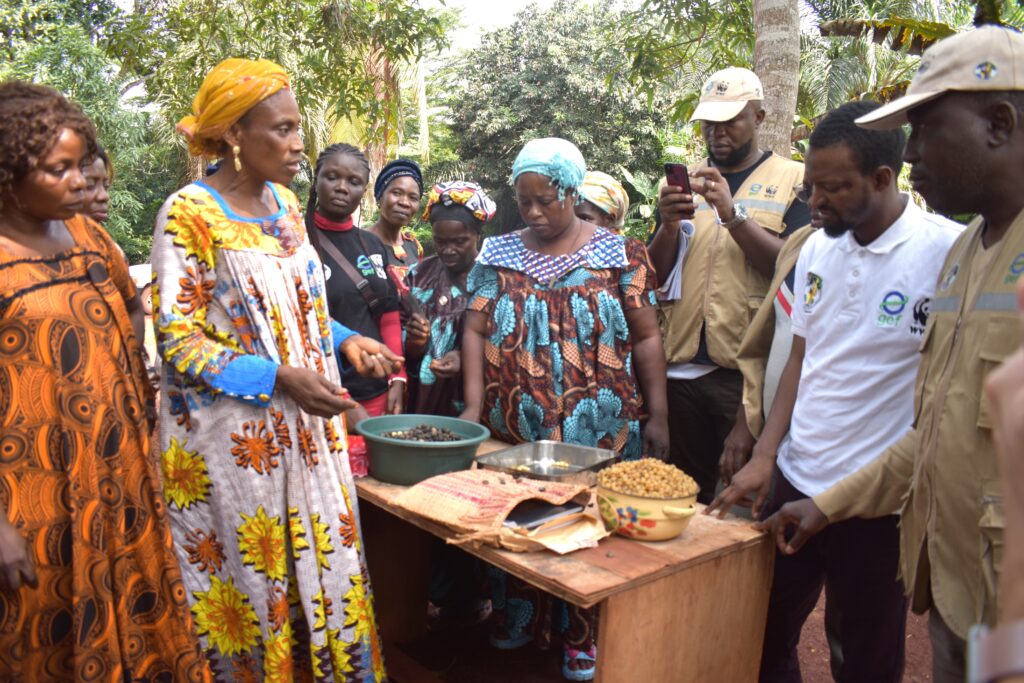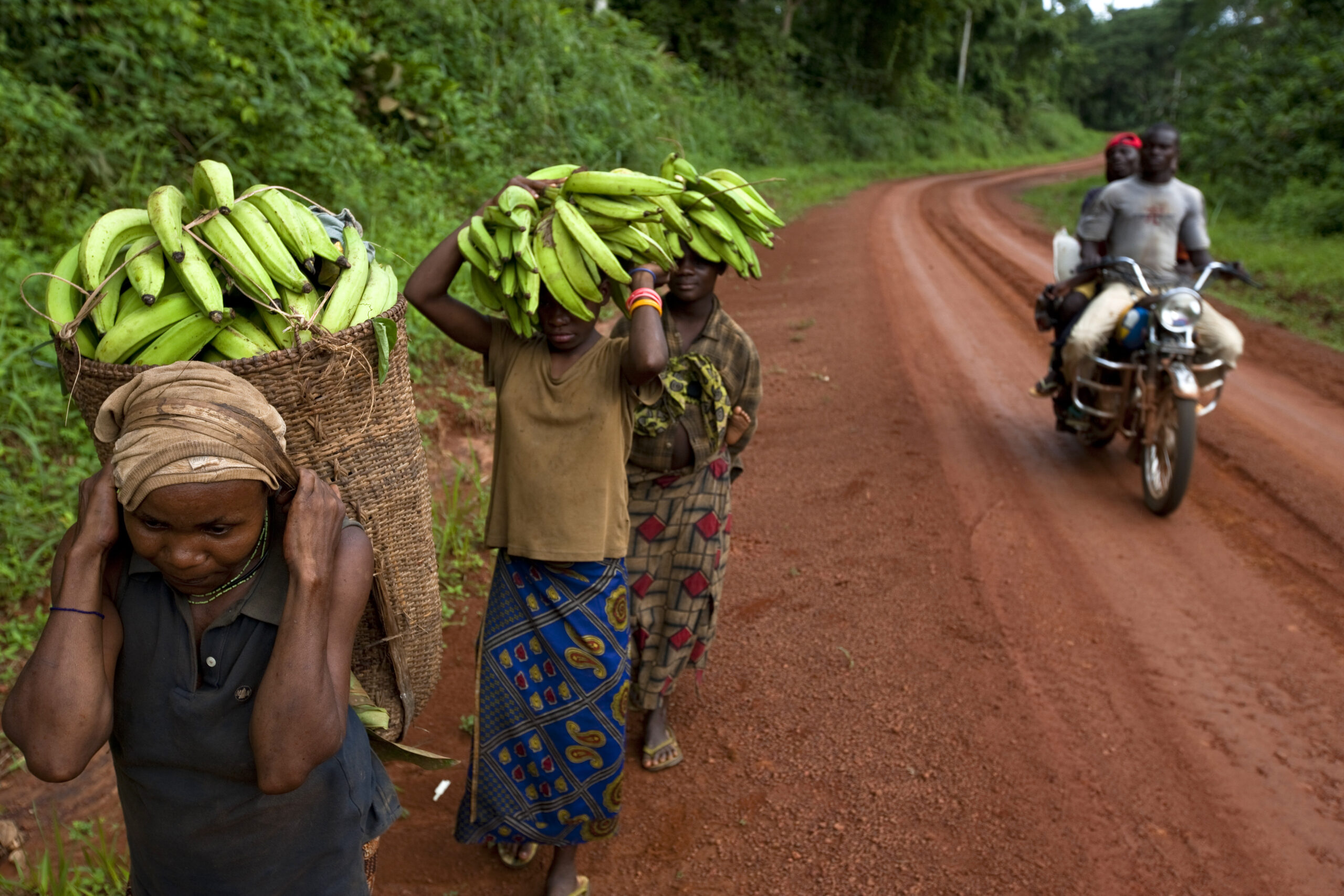GEF-7 Project support helping communities in Eastern Cameroon increase revenue from non-timber forest products

Baka and bantu communities living on the fringes of Lobeke National Park in Eastern Cameroon have witnessed an increase in their revenue from non-timber forest products (NTFPs), thanks to support provided by the Global Environment Facility – GEF-7 project for the Integrated Management of Cameroon’s Forest Landscapes in the Congo Basin.
Thanks to GEF support and supervision, community-based groups and associations have this year sold njansang (Ricinodendron heudelotii) at FCFA 4500 (7,47 USD) a combo (a three-litre bowl) up from FCFA 2500 in previous years. The sale of njansang by members of the group; Réseau des Femmes de l’Arrondissement de Salapoumbe-GIC RAFASAL, that benefited from GEF support, generated more than FCFA 20 million (approximately 33215,28 USD), the highest amount the group has ever sold.
“We used to auction our products due to challenges that hindered us from stockpiling and selling collectively to the right buyers at a higher price. Processing the njansang was difficult for lack of appropriate material. However, we are seeing changes since receiving GEF support,” says Madam Bekolo Rosette epouse Makele, President of GIC RAFASAL.
In neighbouring Mambele, Yenga and Dioula communities, NTFPs groups supported by the GEF-7 project also testify of positive outcomes in their trade.
In March 2024, 11 NTFPs common initiative groups received material through GEF local implementing partner, ROSE (a network of local NGOs in southeast Cameroon), including push-carts, pots, basins, machetes, protective gloves, storage and drying facilities, to ease the njansang processing. They also received grants amounting to FCFA 6 million (approximately 9915,52 dollars), to meet challenges like sickness, education of children and funeral of loved ones; that often push them to auction their produce to middlemen.
Thanks to training, the institution of a small grants management mechanism called LOUFONO (meaning “change” in the Bangando dialect) and follow up by ROSE, they are able to keep records and ensure judicious use of the funds received.
For the Baka, the GEF support is reinforcing their capacity to manage natural resources from the forest, whose access has been guaranteed by the MoU they signed with the Cameroon Ministry of Forestry and Wildlife (MINFOF), granting them access to protected areas.
Even though the immediate impact of the GEF support is perceptible with the NTFPs season, buy-in and adherence by other local community members to the groups is slow. “Some people still prefer to sell their products outside of the system we have put in place, as many cannot wait. With continuous sensitization, they will join us,” says Madame Bekolo.
After a field meeting with some of the beneficiary groups in July, GEF-7 National Director, Adama Saidou, expressed satisfaction at the progress made so far and the immediate results of the project in the communities. “Hearing from women how our support is improving their NTFPs business and helping them to resolve basic problems in their household is appreciable. However, we are still at an early stages and there are some challenges that we have noted,” Adama Saidou said.
For Heike Lengertat, Lead Specialist at GEF Agency USA, “The little things that the project brings to the people is of such importance to them. They were happy and grateful when we came. In Baka and Bantu villages we visited, we received good feedback from the project. The fact that they can collect bush mango and njansang and sell for double the price than before is a huge achievement for the project”.
ABOUT US
10287 Cameroon GEF 7
IP Project Congo Basin
commonly called GEF 7 project is a child project under the
global Sustainable Forest Management Impact Program on Congo Basin Sustainable
Landscapes (Congo IP).
ALL CONTACTS
- PO Box 6776, Yaoundé-Cameroon Rue 1879, Dragage, Sortie SNH .
- Office +237 6 91 41 21 90/+237 6 91 41 21 90
- infos@gef-cbslipcam.org
- 08 am - 05 pm Fri open
- Copyright 2025
- infos@gef-cbslipcam.org









Leave a Reply